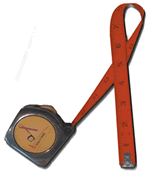
Mobile HIV/AIDS Clinic Competition
Entries for designs used to combat disease in Africa are due November 1
 Architecture
for Humanity, a nonprofit organization promoting architectural and design
solutions to social and humanitarian crises, announced its Mobile HIV/AIDS
Health Clinic Design Competition May 1. For this international competition,
architects are asked to develop designs for a "fully equipped mobile
medical unit and HIV/AIDS treatment center for use specifically in Africa."
Architecture
for Humanity, a nonprofit organization promoting architectural and design
solutions to social and humanitarian crises, announced its Mobile HIV/AIDS
Health Clinic Design Competition May 1. For this international competition,
architects are asked to develop designs for a "fully equipped mobile
medical unit and HIV/AIDS treatment center for use specifically in Africa."
The International AIDS Vaccine Initiative reports that in sub-Saharan Africa alone, more than 5,500 people die of AIDS every day, and another 11,000 are infected with HIV. One of the major roadblocks stopping medical professionals from treating the disease is no way to reach vast areas of Africa with adequately equipped facilities. "Architects and designers not only have the opportunity but a professional obligation to help end the crisis," says Frank O. Gehry, FAIA, Architecture for Humanity advisory board member, "we need to employ the same caliber of design talent and innovative use of materials we use in commercial projects to create a viable solution to the HIV/AIDS epidemic."
 Cameron
Sinclair, founder and executive director of Architecture for Humanity,
who earned his BArch at London's Westminster University and studied at
Bartlett School of Architecture, also works fulltime as a project architect
for Gensler in New York City. He began funding Architecture for Humanity
by himself. "Nowadays," he says, "we receive funding mainly
through individual donations. Over the summer we are working to secure
grants and donations to refine the prototypes into working versions."
Once the prototypes are built, he says, they will be donated to NGOs for
use in the field. "If anyone wants to donate or sponsor a team from
a developing country, you can go to the Web site and donate online or
send it to our office," Cameron says.
Cameron
Sinclair, founder and executive director of Architecture for Humanity,
who earned his BArch at London's Westminster University and studied at
Bartlett School of Architecture, also works fulltime as a project architect
for Gensler in New York City. He began funding Architecture for Humanity
by himself. "Nowadays," he says, "we receive funding mainly
through individual donations. Over the summer we are working to secure
grants and donations to refine the prototypes into working versions."
Once the prototypes are built, he says, they will be donated to NGOs for
use in the field. "If anyone wants to donate or sponsor a team from
a developing country, you can go to the Web site and donate online or
send it to our office," Cameron says.
A detailed set of design criteria can be found on the organization's Web site, www.architectureforhumanity.org. Design submissions are due November 1.
 A
jury of architects, HIV/AIDS specialists, and representatives from relief
and research organizations will evaluate the entries in mid-November.
Finalists will be announced December 1, World AIDS Day, and an exhibition
of the winning entries will be held in New York City. Money raised from
the $35 entry fee, plus donations, will be used to create a prototype
on the winning concept. Architecture for Humanity hopes that refined versions
of the design subsequently will be built for Africa, and eventually, easily
replicated in other areas of the world.
A
jury of architects, HIV/AIDS specialists, and representatives from relief
and research organizations will evaluate the entries in mid-November.
Finalists will be announced December 1, World AIDS Day, and an exhibition
of the winning entries will be held in New York City. Money raised from
the $35 entry fee, plus donations, will be used to create a prototype
on the winning concept. Architecture for Humanity hopes that refined versions
of the design subsequently will be built for Africa, and eventually, easily
replicated in other areas of the world.
"We should not wait 20 years for the commission of a memorial built to the 40 million AIDS victims who will die in Africa," Sinclair concludes. "We as a profession should act now and design to save lives. If in 10, 15, or 20 years a vaccine is found, if built, we will have a highly dispersed network of clinics that are a part of the community and can act."
Copyright 2002 The American Institute of Architects. All rights reserved.
![]()
|
Click here for other competitions and events listed in the AIArchitect calendar. Click here to read how Architecture for Humanity got its start and to view some of the entries.
|
|
